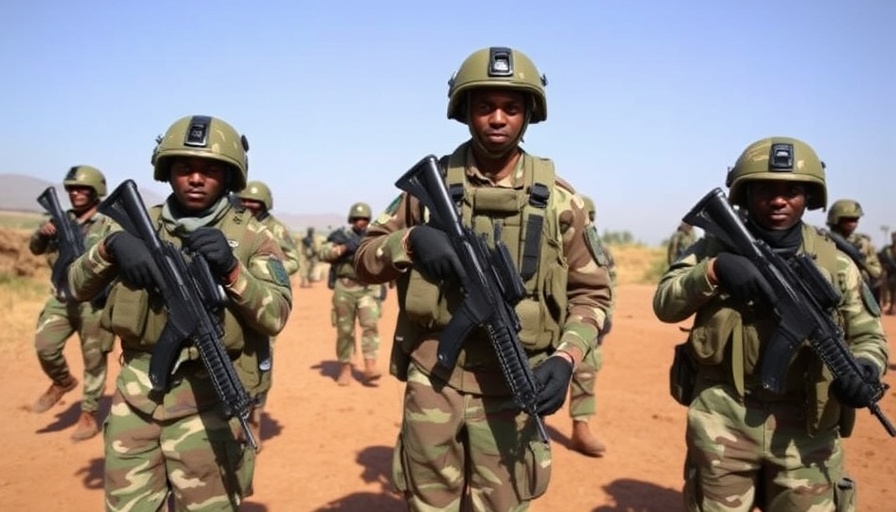
The Crisis of African Peacekeeping: A New Paradigm in Combat
As African conflicts continue to spiral, there’s a troubling trend in the region's peacekeeping efforts: warring factions are outsourcing combat to private military contractors. This shift complicates the traditional role of peacekeeping forces, long viewed as a stabilizing presence in war-torn areas.
Understanding the Outsourcing of Combat
This outsourcing raises critical questions about accountability and the effectiveness of peacekeeping missions across Africa. Contractors, often driven by profit motives, operate outside the frameworks typically guiding military engagement. Their involvement blurs the lines of sovereignty and raises ethical concerns, particularly when National Governments struggle with the political and military will to manage internal conflicts responsibly.
The Geopolitical Implications for Africa
The move towards privatization of conflict raises alarm bells not just within Africa, but globally. With nations invoking external actors to influence combat dynamics, the unity and integrity of African states could face unprecedented challenges. The United Nations has expressed concerns over the implications this has for peace and security in the region, as traditional diplomatic efforts may fail to keep pace with the evolving nature of conflict.
Future Directions for Peacekeeping in Africa
Going forward, African nations must navigate this complex landscape, with potential partnerships being forged between states and private entities. Policymakers have a crucial role in rethinking strategies for peacekeeping, considering how to integrate private contractors while safeguarding regional stability. Furthermore, global stakeholders must recognize the need for a more harmonious intervention in African affairs—balancing profits with the socio-political realities on the ground.
Why Understanding This Dynamic Matters
For business leaders and policymakers, this shifting battlefield is of critical importance. As Africa continues to play an influential role in global trade and geopolitics, the implications of outsourcing conflict can affect investment decisions and international partnerships. Analyzing these developments can unveil opportunities but also risks that may alter the trajectory of African economic growth and governance.
Ultimately, the dynamics of peacekeeping shape not only the immediate regional landscape but also the broader international community’s approach to conflicts in Africa. Stakeholders must engage thoughtfully with these trends, prioritizing sustainable solutions rooted in African autonomy and leadership.
 Add Row
Add Row  Add
Add 


 Add Row
Add Row  Add
Add 

Write A Comment